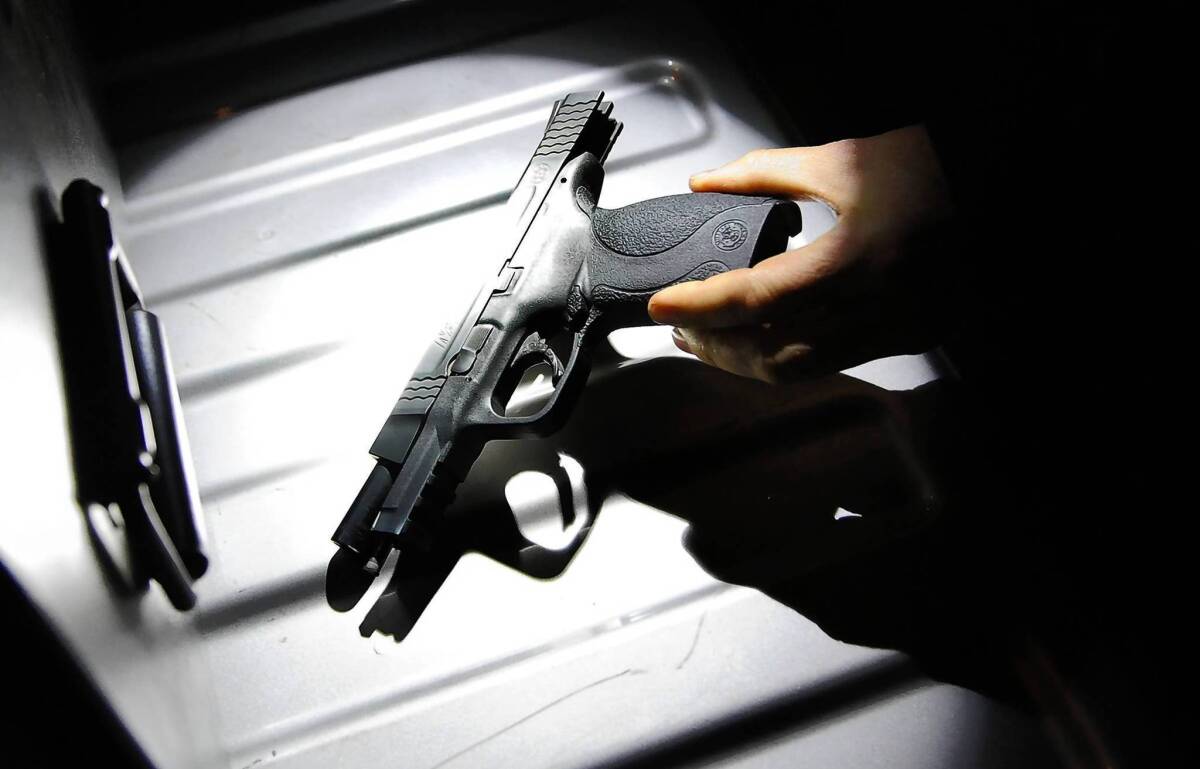Jerry Brown OKs funds to seize guns held illegally

SACRAMENTO â The state will send dozens of new agents into California neighborhoods this summer to confiscate nearly 40,000 handguns and assault rifles from people barred by law from owning firearms, officials said Wednesday.
The plan received the green light Wednesday, when Gov. Jerry Brown signed legislation providing $24 million to clear the backlog of weapons known to be in the hands of about 20,000 people who acquired them legally. They were later disqualified because of criminal convictions, restraining orders or serious mental illness.
The bill is the first of more than a dozen gun measures introduced by California lawmakers after the December massacre of 20 children and six adults at Sandy Hook Elementary School in Newtown, Conn.
âThis bipartisan bill makes our communities safer by giving law enforcement the resources they need to get guns out of the hands of potentially dangerous individuals,â said Evan Westrup, a spokesman for the governor.
California is the only state in the nation to operate a database that cross-references gun owners with those who are subsequently disqualified from owning firearms. But budget cuts have prevented the state Department of Justice from keeping up with the list, which grows by 15 to 20 names every day, officials said.
The new funds will allow the department to hire 36 additional special agents and support staff, with the first officers expected to hit the streets in July, said Lynda Gledhill, a spokeswoman for Atty. Gen. Kamala Harris. The money comes from a surplus in fees paid for background checks by people purchasing guns.
The new agents will work primarily in cities including Los Angeles, San Francisco, Sacramento, Fresno and Riverside, which have requested additional help, Gledhill said. The effort is expected to take three years.
âOur reinvestment in this tracking program gives us the opportunity to confiscateâ guns from those who should not have them, said state Sen. Mark Leno (D-San Francisco), author of the legislation.
Opponents of the measure include the National Rifle Assn. of America and Sam Paredes, executive director of Gun Owners of California, who said any confiscation campaign should be paid for by the state general fund.
âGoing after criminals is a good thing, but the way they are paying for it is grossly unfair,â Paredes said. âThey are putting the entire burden on the back of law-abiding gun purchasers.â
Paredes said some gun owners may not know that they are disqualified from possessing guns for reasons that include, for example, a restraining order in a domestic violence case. He said an education campaign urging people to turn in weapons would be less costly and safer than sending out armed agents.
Some Republican lawmakers voted against the bill, SB 140, because they too objected to tapping money not intended for the new purpose. Other Republican legislators supported the allocation, helping to give it two-thirds approval in both houses.
Of the gun owners on the prohibition list, 32% were disqualified by conviction on a felony or a violent misdemeanor, Gledhill said. About 30% were disqualified for mental health reasons, including court determinations that they are dangerous; 20% are the subject of an active restraining order for cases including domestic violence; 18% are wanted by authorities for violent crimes.
The existing squad of 33 special agents investigated nearly 4,000 people and seized about that same number of weapons, including 300 assault weapons, during the last two years, officials said.
âCalifornia is leading the nation in a common-sense effort to protect public safety by taking guns away from dangerous, violent individuals who are prohibited by law from owning them,â Harris said in a prepared statement.
The California Legislature is still considering measures that would require ammunition purchasers to pay for a permit, close loopholes on the existing assault rifle ban and impose a nickel-per-bullet tax to pay for mental health programs.
The Democratic governor, who has said he owns guns, has not taken a public position on the remaining bills.
More to Read
Sign up for Essential California
The most important California stories and recommendations in your inbox every morning.
You may occasionally receive promotional content from the Los Angeles Times.











